Alan Watts is a thinker we reference often on this site. He was prolific, having published numerous books and recorded countless hours of lectures. Some of his lectures are four or more hours long. Digesting all of this material is a lifetime’s effort for us mere mortals. Today we’re here to help shine a light on one corner of his teachings, We as Organism is a lecture he gave often. This is Alan’s attempt to show us that Monism is in fact the only logical way to think about our existence.
We had planned to meditate on this idea during our last trip. We even watched this exact video at the beginning of our trip to help set that intention. Aunty’s radiant love overcame us and we ended up reinvigorating our mission to be the best partner we can for her. We have no regrets about this, it was a wonderful trip and Aunty is a difficult presence to ignore. We wouldn’t want to miss any precious time with her.
Monism Refresher
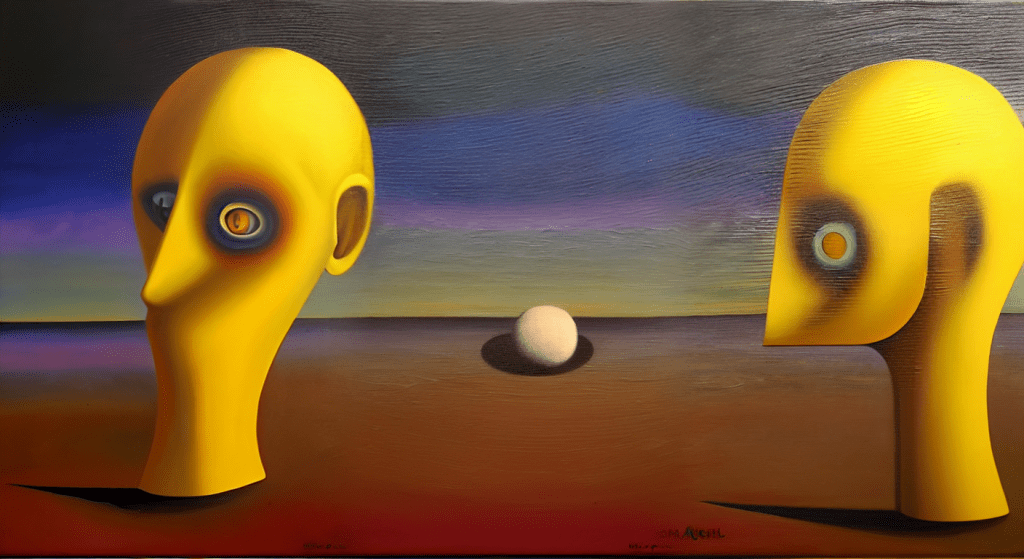
Monism is the philosophical concept that we are all really part of one larger organism, the entire universe is a part of this. The separateness we experience is an illusion we chose to endure. The illusion is enforced by the selfish ego that lives inside all of us.
Even as we typed that we realize how, hmm, maybe crazy it sounds? Maybe we’ve taken too many trips and our mind is no longer what it once was. Have we fallen down the rabbit hole and reached a scientifically indefensible conclusion? Is this just another religion requiring faith and sacrifice to follow. Are we the prophet?
In this post we hope to show that this isn’t true. In fact Monism is a common sense concept that everyone believes very deeply. We just don’t think about it in this explicit way as it breaks the illusion of Maya to do so. Breaking the illusion is taboo to modern society, after all we need to take this existence very seriously if we hope to get ahead in life. We can’t just accept the fellow inhabitants of this reality as our brothers and sisters can we? Who would we fight with if we did that?
Looking down for answers
This is what is so clever about Alan’s We as Organism lecture. There is no mysticism required, no faith, just common sense. Take his example of how our own immune systems work. Inside our bodies there are trillions of cells, which of those are “us” and which are “them”? We suspect you’d consider the immune system cells that defend you from harmful bacteria to be a part of you right? What about the bacteria that live in your intestines and digest your food, are they a part of you — or a separate thing that lives inside of you?
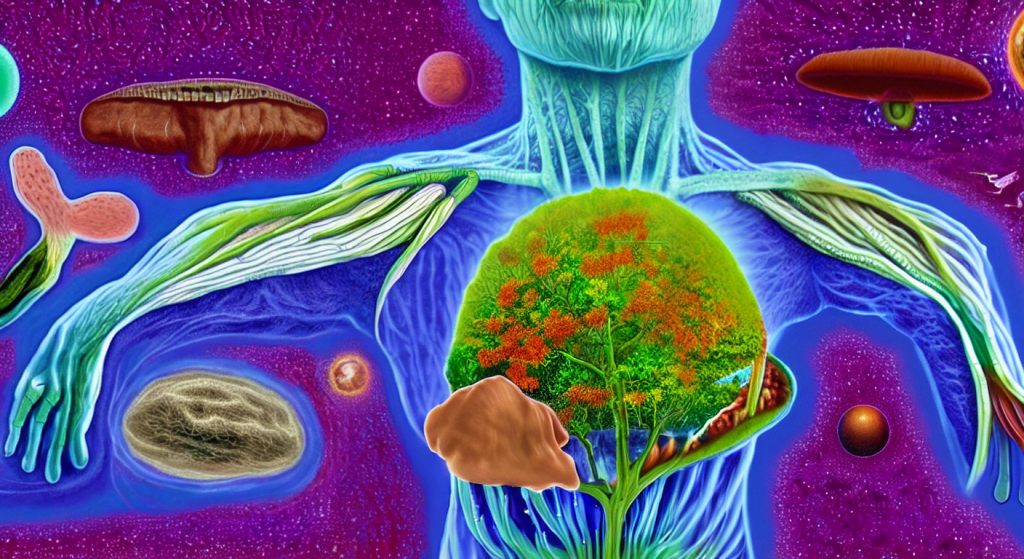
Thinking this way is silly isn’t it. Of course all of those things are a part of you. If you remove any of them, you would die. And yet looking through a microscope it’s difficult to see how these cells and organisms are not separate things. From this perspective the immune system cell is just a friendly medic living in its home, maybe with a family of its own.
An Emergency inside your body
Then you get a small cut! Alarms go off, the immune system cell is roused from its sleep. It kisses its children and rushes through your vessels to defend you once again. Maybe this time it doesn’t come back, sacrificing itself to seal the wound before the enemy can breach the gates. Will their children grow up without a parent because you were careless with that letter opener? Do you even care about that cells life?
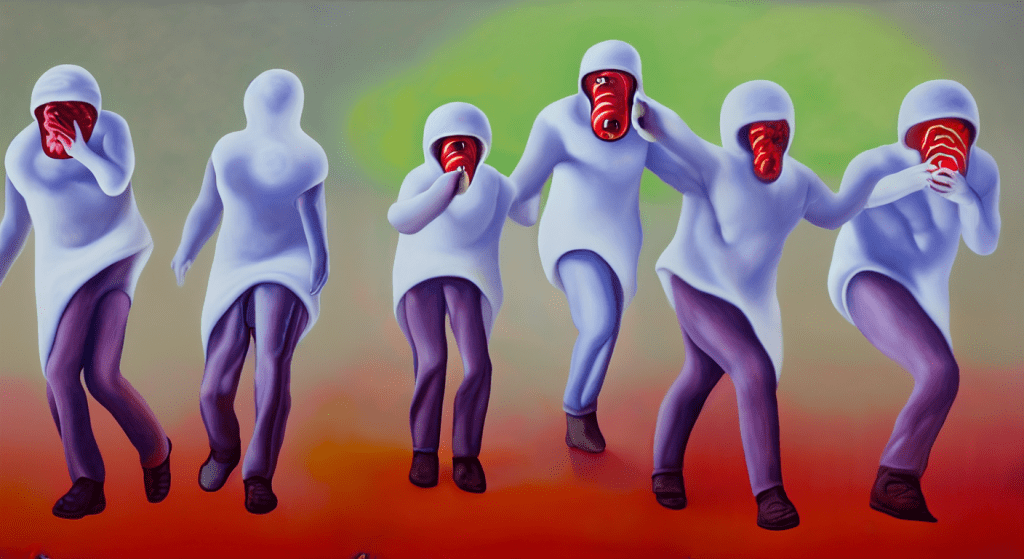
This drama is playing out inside of you at a microscopic level all the time. Entire wars are fought inside your body with more casualties than any world war humans have created thus far. Could you pick a side, and if you could which side would you pick? Who is the good guy and who is the bad guy? The question doesn’t make sense because you need both to exist. You as an organism need these millions of tiny creatures living in you to keep doing what they are doing or you stop existing.
At the same time these individual creatures are completely absorbed in their own lives and desires. They couldn’t comprehend the idea that they are part of a larger organism any more than we can. Try explaining to your gut bacteria that they need to behave tonight so you don’t get sick during your big speech. Our level of existence is simply incomprehensible from their perspective.
What is a god?
When we or Alan or any other psychedelic thinker looks at you and says “You are God”. This is what we mean. You have complete domain over more individual lives inside your body than any religiously derived deity could hope to. And yet you couldn’t begin to answer each individual prayer, there are not enough seconds in the day! You can’t pick sides any more than any other god could, yet you are the god of all these tiny creatures. Your decisions directly impact whether they live or die on a daily basis.
When you look at us and say something silly like “I am an individual, distinct from the others”, we see a tiny blood cell standing among billions of identical cells trying to claim that it matters. That somehow this one is special and unique and all the others are just… others… separate. Forgive us when we laugh at you for making such a claim.
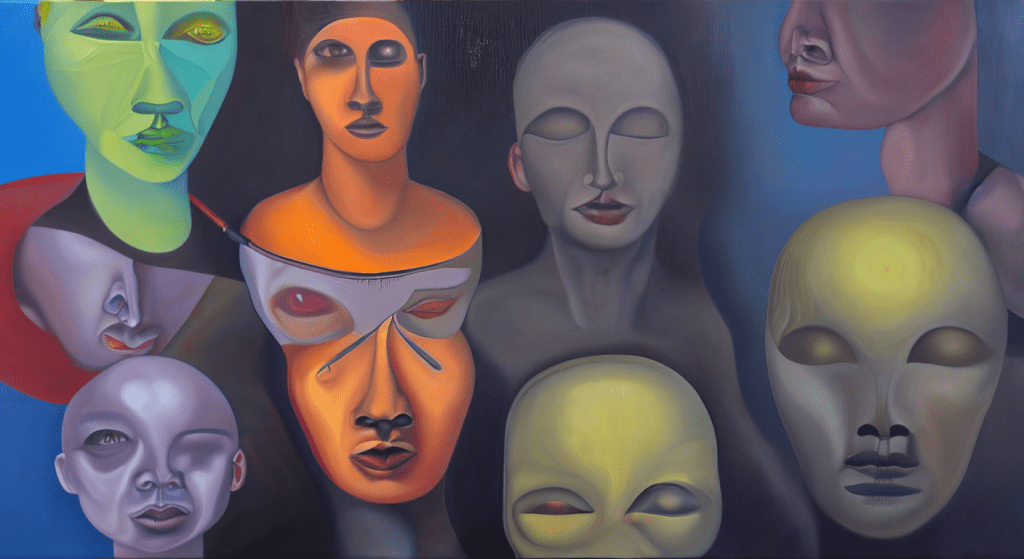
We as organism
Maybe the cell analogy is too abstract and we can’t quite get our minds there. What about an anthill? Surely we’ve seen these before, the way hundreds of tiny little ants appear to work together like a single organism. If you squint — the individuals disappear and you see only the colony operating with one goal, one purpose. Sure some ants sacrifice themselves to make a bridge for the others, but the organism goes on.
You develop an instant global consciousness, a people orientation, an intense dissatisfaction with the state of the world, and a compulsion to do something about it. From out there on the moon, international politics look so petty. You want to grab a politician by the scruff of the neck and drag him a quarter of a million miles out and say, “Look at that, you son of a bitch.”
Edgar Mitchell – on seeing the Earth from the Moon.
The Overview Effect is a well establish principle. It seems most people who venture into space experience the perspective of looking back at earth like a tiny anthill. Quote’s like Mitchell’s above are easy to find. Like the ants, and like the bacteria waging wars inside ourselves, humans seem like one large organism from this perspective.
The ego driven illusions we’ve all agreed to take part in down here on earth make our small problems seem so big. They cut us off in traffic, they must be punished for this. They don’t look like us or talk like us, we can never trust them. We need to speak badly about them so that we can get a promotion and they do not. These basic flaws in our ego drive every aspect of what we consider modern life.
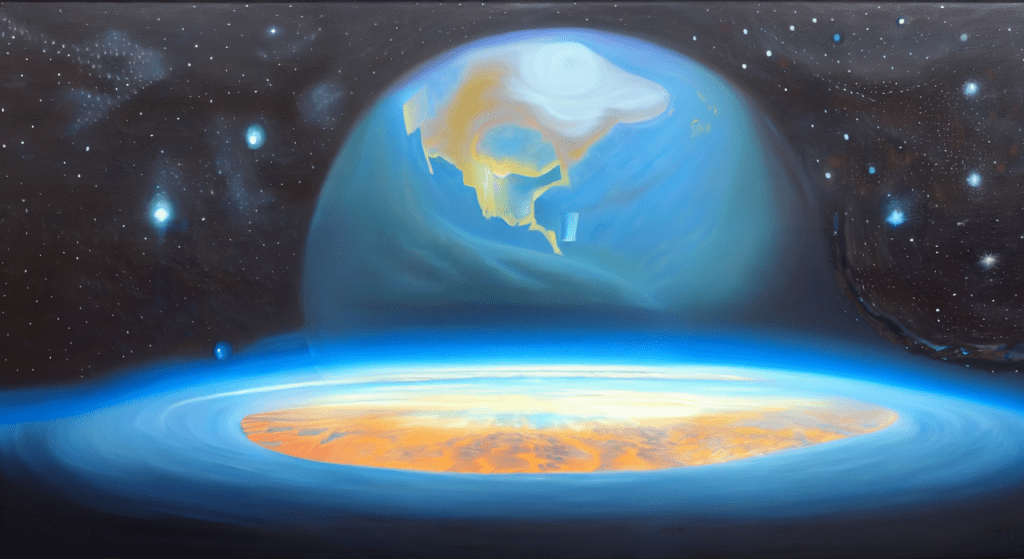
Getting even higher
But it doesn’t end there does it? We can look further into space, there are trillions of stars out there — surely we’re not alone. We’re not just one little anthill in an otherwise barren field are we?
The Fermi Paradox is a brilliant expression of this idea. We exist, and nothing about our existence seems especially interesting from a cosmic perspective. We’re finding planets just like our own everywhere we happen to look. Still, we seem to be alone, nobody has come to visit us have they?
There are many theories for why this paradox seems true, you can read about them on the wiki page. We’d like you to consider your own body again, or if that is too difficult some other persons abstract body. How does this body end? Does anyone live forever, go on forever, would anyone want to?
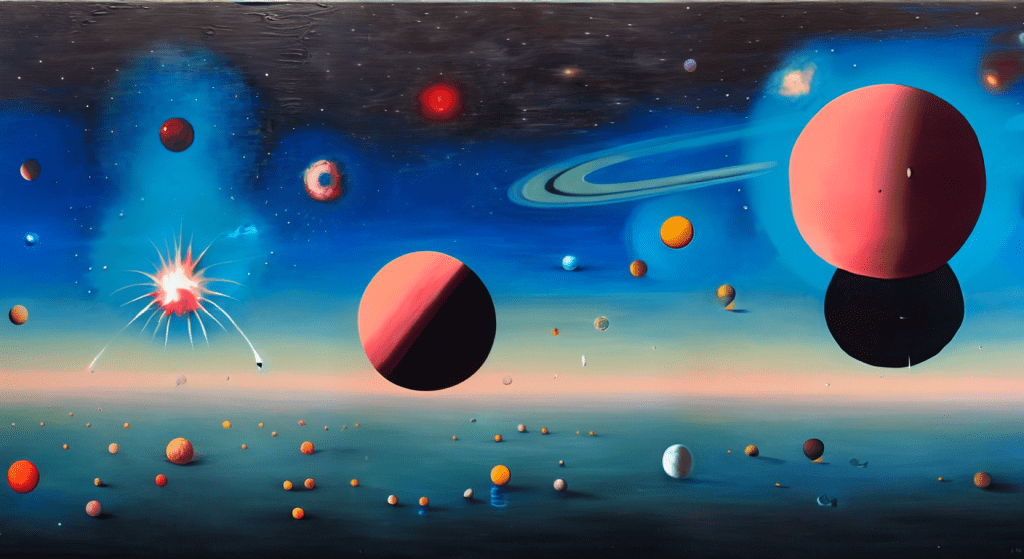
All bodies end
All bodies, without exception, end. When they end they sort of dissolve back into the individual creatures that made them up. Decomposition is simply your own bacteria winning the war and taking their prize. Your immune system fought valiantly for 50, 60, 100 years, but eventually they lose this fight.
We apologize for putting these images into the universe but it is important to think on this idea if you want to reach an understanding of monism.
So knowing this, that nobody has lived forever, is it so surprising that we find no other intelligent life out there? We as Organism will not live forever any more than any other ant hill is going to live forever. Especially if we continue to fight wars the way we do, if we continue to fear and hate our fellow inhabitants simply because they are “different”.
Maybe this is the answer; Alan proposes it in this lecture as well. Maybe all the dead planets we see are the result of previous anthills, just like ours, that didn’t make it. Nuclear holocaust, climate change, or even just plain old fascist hatred can easily end our entire existence. These are wounds that the immune system of humanity cannot heal, they are too big. If they happen the organism that is “us” will die.
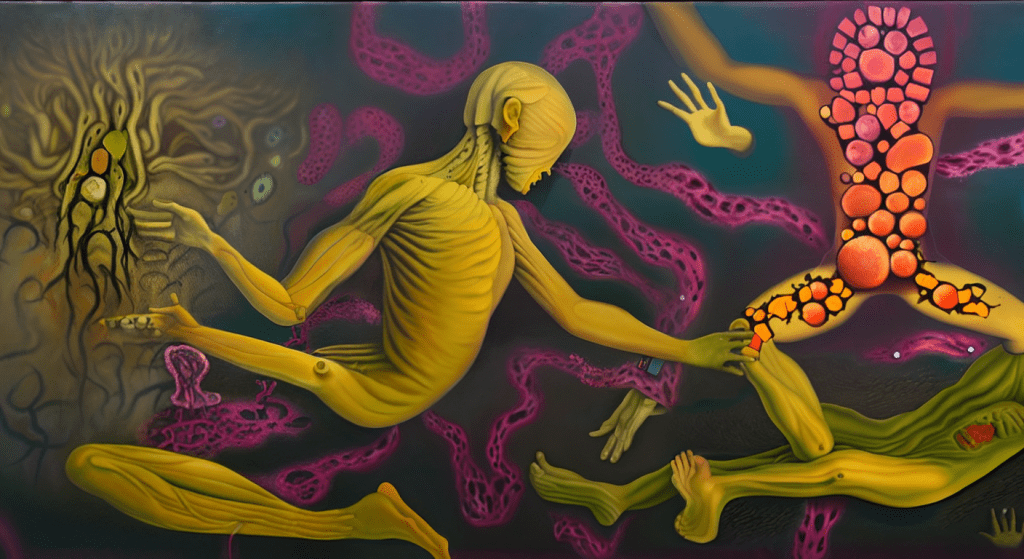
Conclusions
Again we reach the end of a complex series of thoughts and are left with the question “So what?”. We as an individual cannot stop the ultimate death of the human species anymore than we could stop our own can we? Still we suspect that even though you know you will die, you aren’t rushing that end are you? Likely you practice habits like a good diet or exercise to try to prolong the life you have. You probably go to the doctor when you are sick, you don’t just lie in a field and accept death eh?
As you go about your day consider what the equivalent habits would be for a healthy human species. We could prolong the life of our species with better habits. We could make it less traumatic to exist here, we could reduce suffering on the scale of We as Organism.
This is Alan’s message to us, it was always his message. Please listen and help us turn this around.
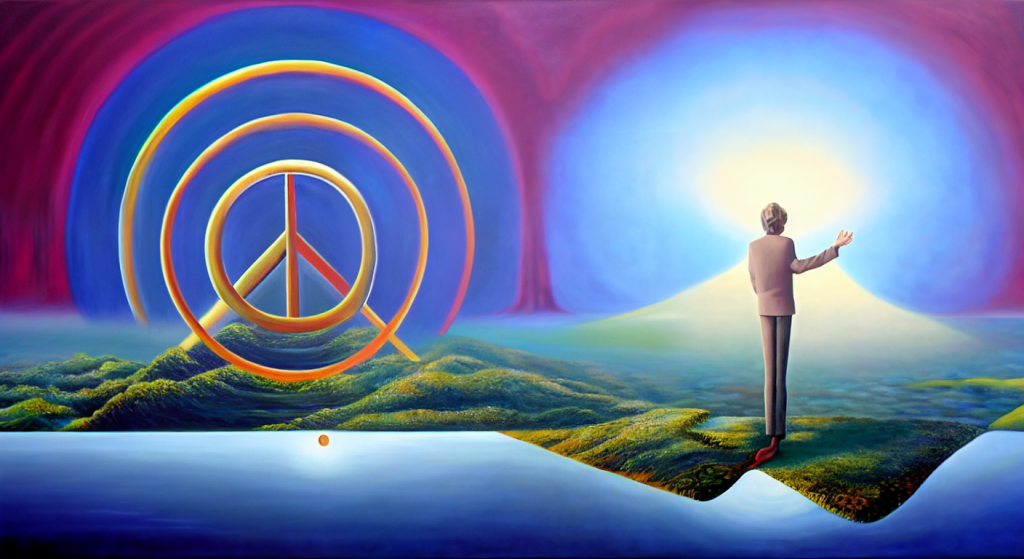
Finally, if you are eager to hear more or just support Alan Watts’ estate we encourage you to pick up a copy of his essential lectures. This collection includes We as Organism, as well as all of his most important talks. This is well worth the price of admission in both money and time.
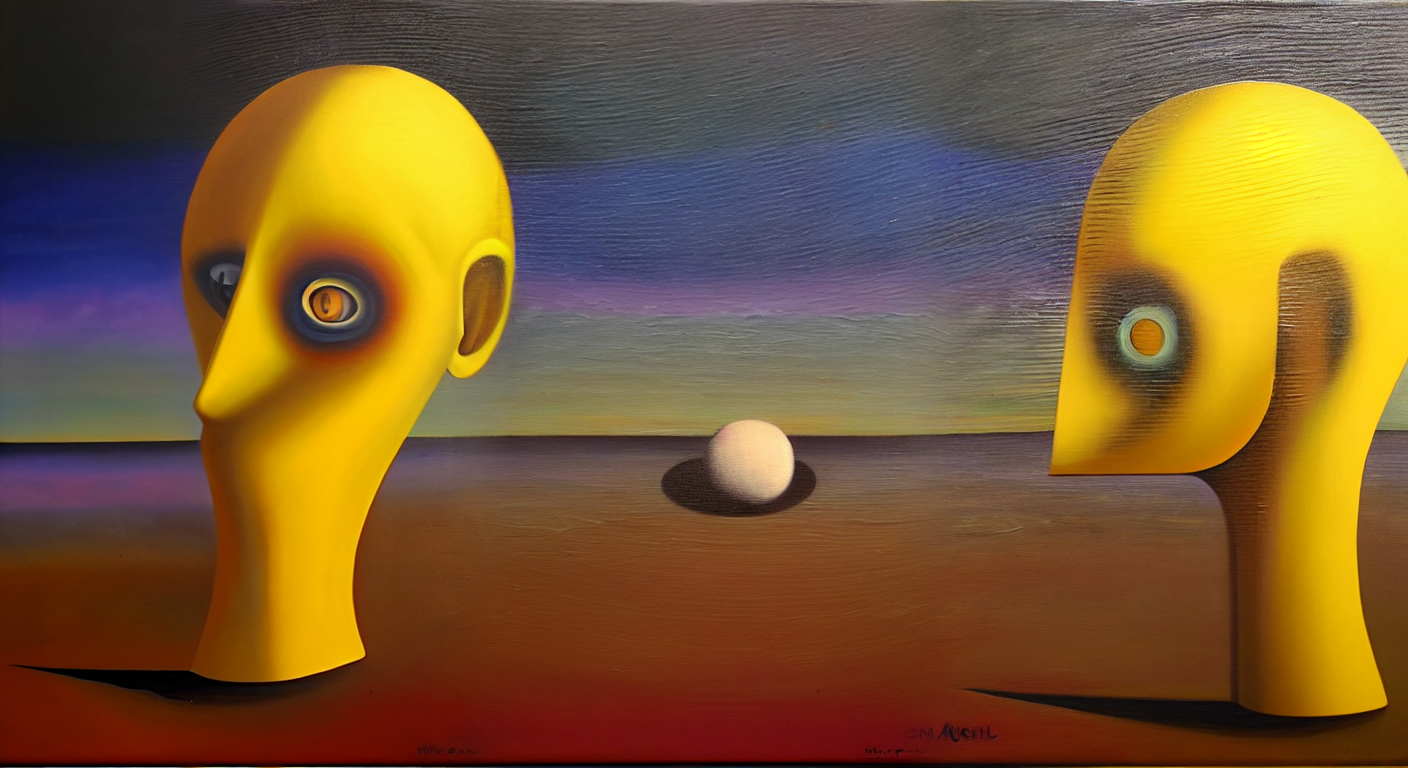
Leave a Reply to Give and Take: Understanding Good and Evil in Modern Society – Here’s Tom With The Weather Cancel reply